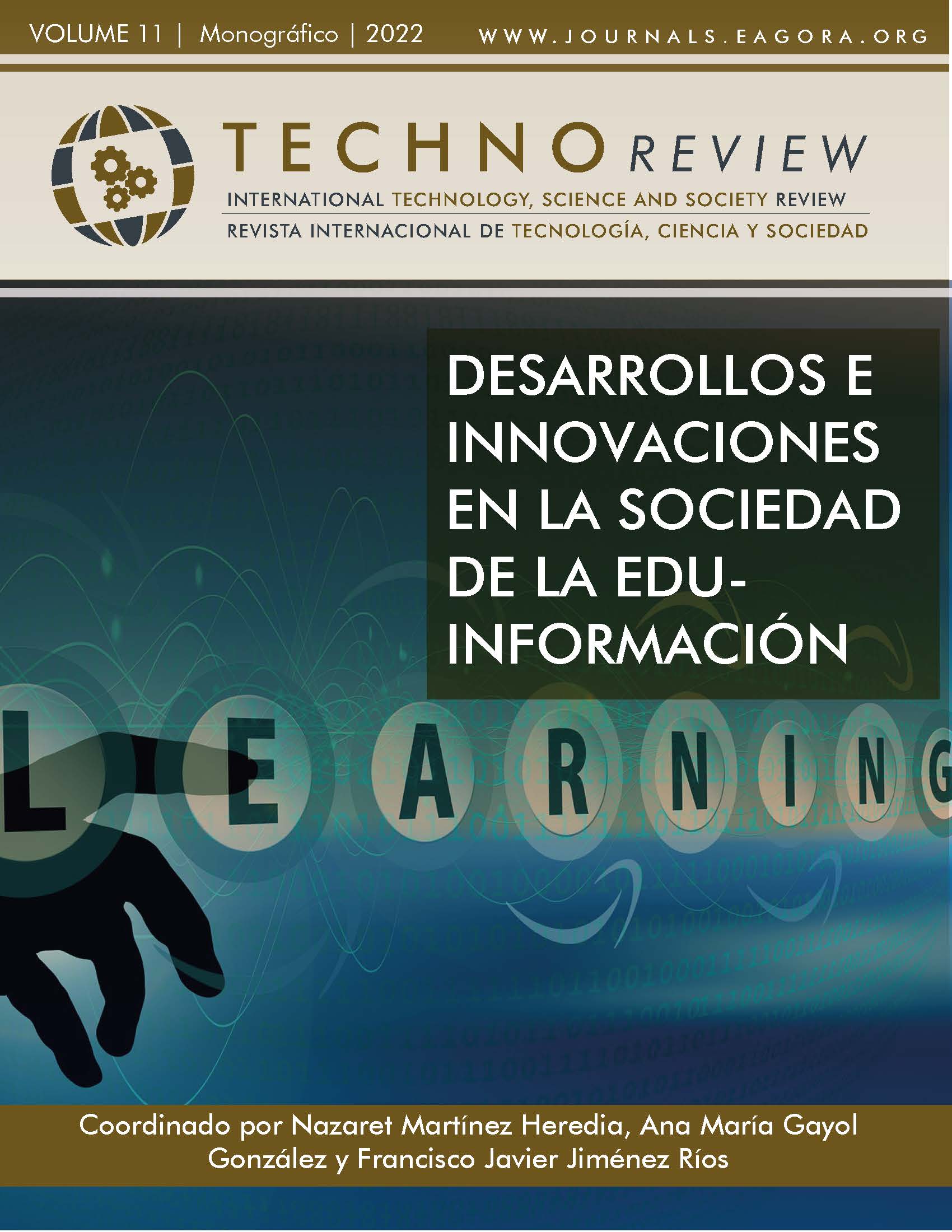Analysis of “Wikiproducers” as future leaders
DOI:
https://doi.org/10.37467/revtechno.v11.3801Keywords:
Technology, Education, Business, Millennials, Generation Z, University, Disruptive methodologyAbstract
The profile of consumers and future business leaders is beginning to resemble that of producers and personal digital marketers. The aim is to find out to what extent current education matches the expectations of Wikiproducers and to determine the relationship between the attitudes of these leaders and the businesses of the future. It is a qualitative study through focus groups with university students and in-depth interviews with senior business managers. Among the results is the perception that higher education does not respond to the adaptation needs of the labour market.
References
Anderson, C. (2006). The long tail: Why the future of business is selling less of more. Hachette UK. Alcázar, P. (2011). Entre singles, dinkis, bobos y otras tribus. Grupo Planeta Spain.
Arce, G. (2015). The impact of the social nets on the Net Generation, Ph.D. Thesis. Universidad Alfonso X El Sabio (UAX).
Beahm, G. (2011). I, Steve (Steve Jobs insights). B2 books. Chicago Beckwith, H. (2011). Unthinking. Business Plus. Boston
Brack, J., & Kelly, K. (2012). Maximizing Millennials in the workplace. UNC Executive Development, 22(1), 2- 14.
Burstein, D. D. (2013). Fast future: How the millennial generation is shaping our world. Beacon Press.
Castells, M. (2010). La sociedad red: una visión global. Enl@ ce: revista venezolana de información, tecnología y conocimiento, 7(1), 139-141.
Celaya, J. (2010). La empresa en la Web 2. El impacto de las redes sociales y las nuevas formas de comunicación online en lnternet. Ediciones Gestion 2000
Dannar, P. R. (2013). Millennials: What they offer our organizations and how leaders can make sure they deliver. The Journal of Values-Based Leadership, 6(1), 3.
Don Tapscott & Anthony D. Williams: Wikinomics: How Mass Collaboration Changes Everything. International Journal of Communication, 2, 11.
Hart, S. L., & Milstein, M. B. (2003). Creating sustainable value. Academy of Management Perspectives, 17(2), 56-67.
Holliday, W., & Li, Q. (2004). Understanding the Millennials: updating our knowledge about students. Reference services review.
Kirkpatrick, D. (2011). The Facebook effect: The inside story of the company that is connecting the world. Simon and Schuster.
Kotler, P., Kartajaya, H., & Setiawan, I. (2019). Marketing 3.0: From products to customers to the human spirit. In Marketing wisdom (pp. 139-156). Springer, Singapore.
Maquiavelo, N. (2004). El Príncipe. Edimat Libros S.A. Madrid.
Martin, D. M., & Schouten, J. (2011). Sustainable marketing (p. 264). Pearson Prentice Hall.
McMillan, S. J., & Morrison, M. (2006). Coming of age with the internet: A qualitative exploration of how the internet has become an integral part of young people’s lives. New media & society, 8(1), 73-95.
McNamara, B. (2009). The skill gap: Will the future workplace become an abyss. Techniques, May 2009, 24- 27.
Meister, J. C., & Willyerd, K. (2010). Mentoring Millennials. Harvard business review, 88(5), 68-72.
Olcese, A., Rodríguez, M., & Alfaro, J. (2008). Gobierno y dirección de la empresa responsable y sostenible. En su: Manual de la Empresa Responsable y Sostenible. Conceptos y herramientas de la Responsabilidad Social Corporativa o de la Empresa (pp. 67-150).
Peters, T. J., & Waterman Jr, R. H. (2017). En busca de la excelencia. HarperCollins Espanol.
Prensky, M. (2006). Don't bother me, Mom, I'm learning!: how computer and video games are preparing your kids for 21st century success and how you can help!. St. Paul: Paragon house.
Prensky, M. (2001). Digital natives, digital immigrants part 1. On the horizon, 9(5),
Qualman, E. (2012). Socialnomics: How social media transforms the way we live and do business. John Wiley & Sons.
Sweeney, R. (2006). Millennial behaviors and demographics. Newark: New Jersey Institute of Technology, 12(3), 10.
Downloads
Published
How to Cite
Issue
Section
License
Those authors who publish in this journal accept the following terms:
- Authors will keep the moral right of the work and they will transfer the commercial rights.
- After 1 year from publication, the work shall thereafter be open access online on our website, but will retain copyright.
- In the event that the authors wish to assign an Creative Commons (CC) license, they may request it by writing to publishing@eagora.org







